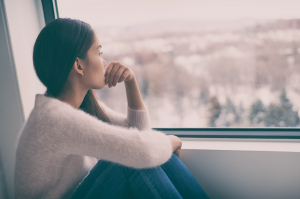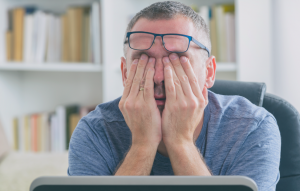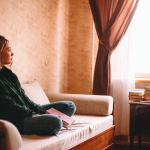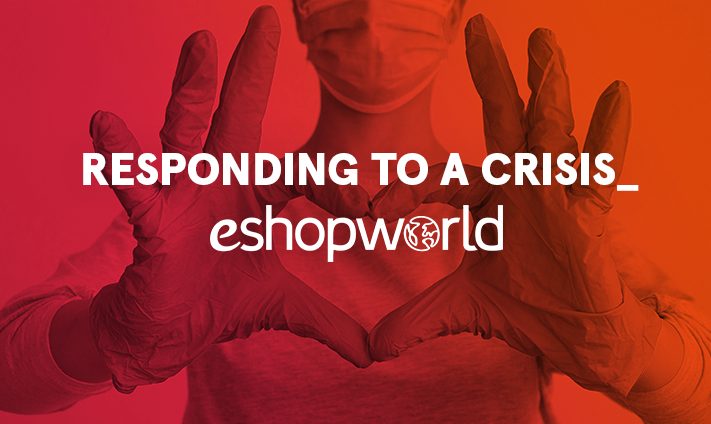Life is weird at the moment, there’s no doubt about it. We’re stressed, anxious and confused pretty much all of the time. That’s the new normal, it seems. However, we must be sure to manage these feelings as best we can during the outbreak of the Coronavirus.
I recently reached out to the wonderful Eithne Hunt, a State registered occupational therapist and wellness expert, for some helpful advice on how we can all do our best to cope in the current climate.
Here is a piece she wrote just for us…
Essential. Desirable. On Channel 4’s Location, Location, Location Kirsty and Phil ask homeowners to make such lists when assisting them with relocating. Maybe you’ve applied for a job and have had to show how you are meeting these criteria. For me, these words along with some simple self-care practices are powerful ways to manage day to day life in the midst of COVID-19.
My family and I have had to consider what is essential in our lives and what is desirable. For my husband and me, our son’s health is our first priority. He is 10 and like everyone, having his ups and downs with lockdown living. He is really missing his friends and his sports. We have a schedule and have found that this needs to be revisited every so often. This week, we have adjusted our family routine so that I am now working at the computer in the kitchen while he does his school work, as he was lonely in his “classroom” on this own. For us, it’s essential that we support our son through this difficult time.

My husband is self-employed and so it is essential that he is able to focus on his work to the greatest extent possible. As a result, I am spending more time with our son. I’ve had to adjust my expectations for what is doable in my own work. I’m employed full time as a lecturer in Occupational Therapy in UCC. I’m finding most work tasks taking much longer than I anticipated, because my concentration is reduced, I don’t have a designated work space and working fully online is new to me. Maintaining connections with my students in the last six weeks has been essential as has marking end of year assignments and supervising undergraduate and postgraduate research. Progressing my own research falls into the desirable category for now.
Physical activity is an essential for our family as this is critical for mental and physical wellbeing. We are also prioritising having some down time together in the evenings, taking turns to pick something to watch on TV. Last night, my husband and I agreed to schedule in a coffee catch up for the two of us when our son has some of his screen time. Finally, sleep is a priority.
Try to identify what’s essential and desirable in your life right now and work out a schedule that works for you and your loved ones. Revisit your essential and desirables list and schedule from time to time. Schedules are very helpful but flexibility is important too. It’s about bending and not breaking these days. Allowing sufficient flexibility in these extraordinary circumstances when rigid rules could mean we break under the pressure, but retaining some boundaries for emotional safety and security.

We feel stressed when we perceive that the demands being placed upon us exceed our perceived ability to cope. Tending to what is essential in your life right now is one way to manage the feelings of stress that are so normal in our current circumstances. Bolstering our ability to cope is equally important by paying attention to our own self-care. Eating well, exercise, sleep, time out, time together, time alone. Consider what boosts your own reserves, what recharges you.
Anxiety is another common emotional response to life in the midst of COVID-19. Anxiety can be understood as the overestimation that something terrible is going to happen, and the underestimation of one’s ability to cope. “What if” thinking is a hallmark of anxiety. Some “what ifs” I’ve noticed include “what if my parents become unwell when none of us are able to be with them?”, “what if our son gets COVID-19 and we can’t stay with him in hospital?”, “what if my brother (a frontline medic) gets sick”, “what if my (self-employed) husband’s business goes under?”.
When the waves of anxiety come, I try to notice this hallmark “what if” thinking spiral and replace with “what is”. I try to gently come back to “what is”, what I know to be true, for now. Grounding techniques can be also be helpful to break the rapid spiral of catastrophic thinking and physical unease that typify anxiety. Willem Kuyken and Hazel Harrison have written specifically about the importance of grounding ourselves in the midst of COVID-19.

Another powerful way to respond to feelings of anxiety is offer ourselves compassion. Christopher Germer and Kristin Neff are the leading scholars in self-compassion which they describe as comprising three elements: mindfulness, common humanity and self-kindness. Firstly, we learn to recognise our own suffering without exaggerating or minimising it (mindfulness). Then we remind ourselves that we are not alone or weak or flawed for feeling pain, worry, anger or sadness (common humanity). Lastly, we offer ourselves compassion through physical soothing gestures or comforting words (self-kindness).
Identifying what is essential and desirable in your current circumstances, having a schedule that allows you to bend and not break, bolstering your reserves through self-care, gently grounding yourself in “what is” instead of spiralling away with “what ifs” and offering yourself compassion will all help you to keep yourself as well as possible in these extraordinary times. This is more important than ever as the weeks pass and uncertainty remains. It is essential that we consider how to pace and sustain ourselves for the long months ahead.
Dr. Eithne Hunt is a State registered occupational therapist and a lecturer in the Department of Occupational Science and Occupational Therapy, UCC.











